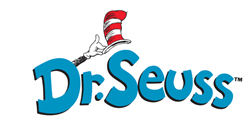Posted Mar 4, 2021
|
Today, on Dr. Seuss’s Birthday, Dr. Seuss Enterprises celebrates reading and also our mission of supporting all children and families with messages of hope, inspiration, inclusion, and friendship. We are committed to action. To that end, Dr. Seuss Enterprises, working with a panel of experts, including educators, reviewed our catalog of titles and made the decision last year to cease publication and licensing of the following titles: And to Think That I Saw It on Mulberry Street, If I Ran the Zoo, McElligot’s Pool, On Beyond Zebra!, Scrambled Eggs Super!, and The Cat’s Quizzer. These books portray people in ways that are hurtful and wrong. Ceasing sales of these books is only part of our commitment and our broader plan to ensure Dr. Seuss Enterprises’s catalog represents and supports all communities and families. |
That unexpected statement from Dr. Seuss Enterprises has launched a great deal of discussion, fueled some misinformation, and raised many questions. How could any works of such an iconic literary figure cease publication? Will other Seuss books be banned? If he was a racist, should we stop reading Dr. Seuss?
The decision to cease publication of those six titles acknowledges both sides of Dr. Seuss’s very complex legacy – that of an iconic creator of children’s books who believed reading should bring joy and a man who openly expressed racist and anti-Semitic ideas.
Dr. Seuss is credited with revolutionizing the world of children’s literature. Two of his most popular books – The Cat in the Hat and Green Eggs and Ham – were written in response to declining reading skills in American children. Seuss and his publisher believed the “Dick and Jane” reading texts of the time weren’t inspiring an excitement about books. He recognized that presenting reading as a skill to be mastered instead of a fun, enjoyable activity would never result in a nation of readers. He created books that invited children to play with sounds, rhyme, and imagination. In books like The Lorax, Sneetches, and Butter Battle Book he presented complex societal issues in ways that children and adults could understand. His collection of zany, quirky characters have become cultural icons including the Cat in the Hat, Sam I am, and the Lorax. By respecting children’s intelligence and natural desire for play, he inspired generations of young readers and changed the world of children’s books forever.
That is the Dr. Seuss most of us are familiar with. Dr. Seuss was also am acknowledged racist. Later in life, he expressed considerable regret for his earlier beliefs and acknowledged the hurt they caused. Seuss’s racist past has been the focus of literary research and discussion for several years. His racist and anti-Semetic beliefs are prominent in many of his early writings and cartoons for adults. While not as blatant as in his adult works, the racist images portrayed in some of his children’s books cannot be denied nor ignored.
The six titles that will no longer be published contain racist and stereotypical images of Asians, Africans, and Arabs. The decision to stop publishing those six titles was made by the company that owns the rights to Dr. Seuss’s work. The company’s decision was not the result of outside pressure, protests, or a call for banning of the books. It is not unusual for publishers to stop printing some books – especially if they are inaccurate, no longer relevant, or contain outdated or harmful information or images. It is comparable to automobile manufacturers discontinuing certain car models.
Dr. Seuss has not been “cancelled.” The Shorewood Public Library, like libraries across the country, will not be removing those books or any other Dr. Suess titles from our collection. Intellectual freedom and offering materials that represent a variety of viewpoints are cornerstones of the public library’s mission. Keeping those books on our shelves meets the needs of a variety of library users – those interested in exploring racism in children’s literature, and those who want to see first-hand what the controversy is all about, as well as parents who may want to use the books to start a discussion with their children about racist portrayals in books and the harm they cause. They may also be used to demonstrate the complexity of racism and how a person who has done many positive things may also do hurtful things. All six titles now have waiting lists in the Milwaukee County Federated Library System so there is a demand to be met. While we will not remove the titles, we will also not showcase them, promote them, or recommend their use with children in the same way we would recommend HOP ON POP for a beginning reader.
We will continue to celebrate Dr. Seuss’s considerable contribution to children’s literature and his dearly-loved characters. We will expand our celebrations to include many other diverse authors and illustrators who make reading a joyful experience for all children.
Share This:

